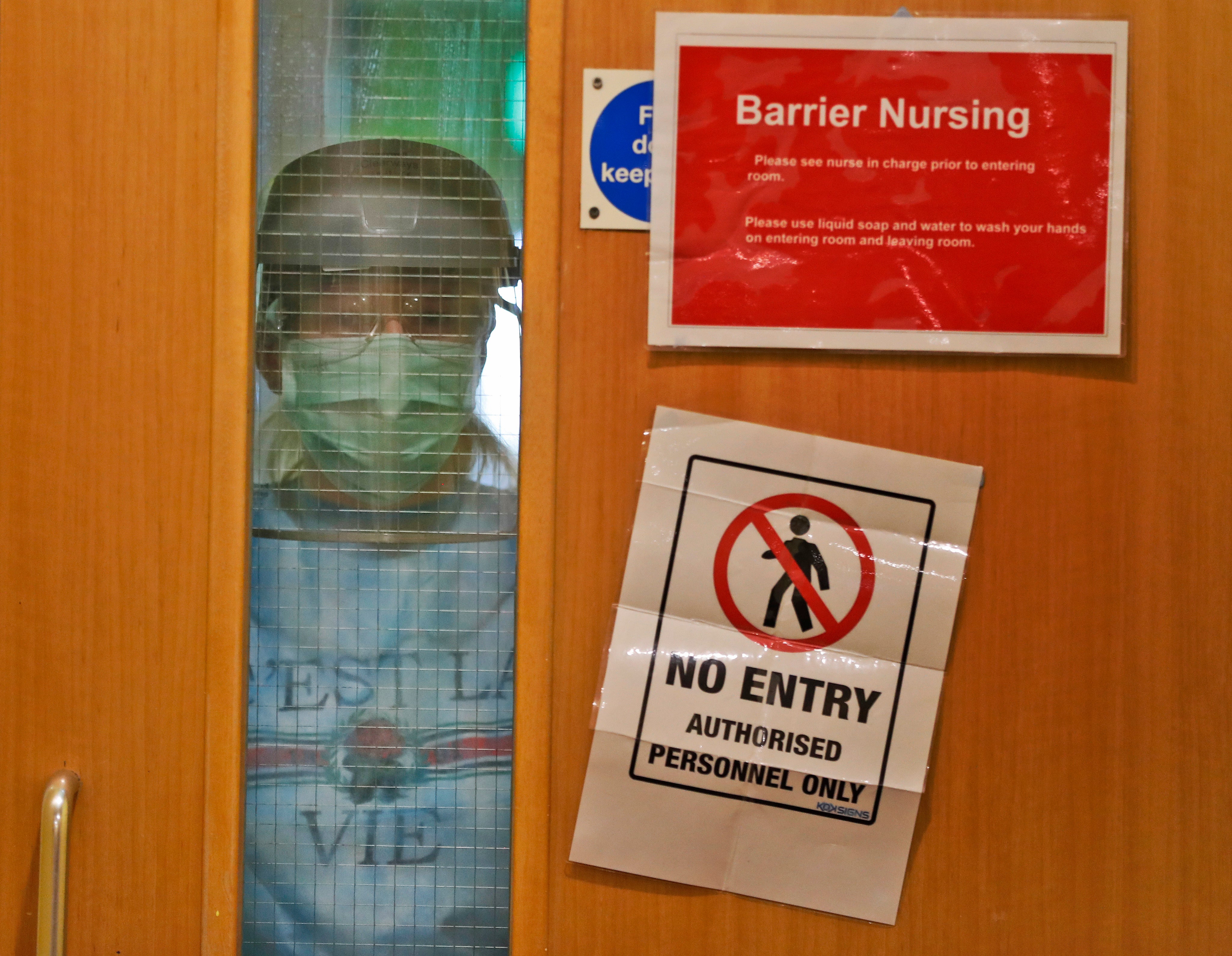Care homes ruling shows politicians are not immune to long Covid effects
Matt Hancock’s chances of a political comeback seem slimmer than ever, as Sean O’Grady explains


For troubled ministers in this Conservative government, “living with Covid” means forgetting about it and, in particular, forgetting about some of the more obvious policy failures during the crisis.
The official inquiry led by Baroness Hallett won’t begin its, no doubt dramatic and damaging, hearings until next year, conveniently, but with Partygate and other revelations such as the court ruling on care homes, the government’s performance will remain in the news.
Even aside from the estimated 170,000 excess deaths that touched virtually everyone in the country, some 1.5 million more are suffering from long Covid. While many other scandals directly affect only a minority of the population, the coronavirus is still making its presence felt. Long Covid is also a political phenomenon.
The high court ruling certainly makes a mockery of the government’s claims at the time that it was putting a “protective arm around” care homes. In short, it makes the government look like liars. It is not a matter of hindsight, because even at the earliest stages of the pandemic it was evident that the virus was highly infectious, and hit older people especially hard. Even to a casual observer at the time it looked very much as though the authorities were desperately trying to clear as many beds and intensive care places as possible in preparation for the expected wave of patients, at a time when there were no vaccines, no treatments and scant testing. It looked suspiciously like the general attitude was that older folk were regarded as dispensable, and the young prioritised. This is substantiated by claims that the prime minister made disparaging private remarks to that effect; according to his former adviser Dominic Cummings, Johnson resisted a further lockdown in 2021 because he thought people dying from coronavirus infections were "essentially all over 80.”
In their ruling, Lord Justice Bean and Mr Justice Garnham stated that, despite there being "growing awareness" of the risk of asymptomatic transmission throughout March 2020, there was no evidence that Matt Hancock, the health secretary, addressed the issue of the risk to care home residents of such transmission. Although Hancock has since resigned, for breaking his own Covid rules, this case readies questions about the judgement of the prime minister and the cabinet as well.
The judgment is damning in the simple force of its argument. Referring to official documents dating back to March and April 2020 it argues: “In our judgement, this was not a binary question – a choice between on the one hand doing nothing at all, and on the other hand requiring all newly admitted residents to be quarantined.
“The document could, for example, have said that where an asymptomatic patient, other than one who has tested negative, is admitted to a care home, he or she should, so far as practicable, be kept apart from other residents for up to 14 days.
“Since there is no evidence that this question was considered by the secretary of state, or that he was asked to consider it, it is not an example of a political judgement on a finely balanced issue.
“Nor is it a point on which any of the expert committees had advised that no guidance was required.
“The drafters of the documents of 17 March and 2 April simply failed to take into account the highly relevant consideration of the risk to elderly and vulnerable residents from asymptomatic transmission.”
A spokesman for Hancock commented that he had “frequently stated” that he wished the risks from asymptomatic transmission “had been brought to his attention”, and that “this court case comprehensively clears ministers of any wrongdoing and finds Mr Hancock acted reasonably on all counts … the court also found that Public Health England failed to tell ministers what they knew about asymptomatic transmission”.
Whoever is right, this latest flare-up over Covid proves that the issue is going to hang around politics for some time, even if no new “variant of concern” emerges. Hancock himself is supposedly preparing a memoir, and the Sue Gray report is reportedly feared by Downing Street. The chances of a Lazarus-style political comeback for Hancock seem slimmer than ever, even as the wider political consequences of Covid are yet to fully emerge.



Join our commenting forum
Join thought-provoking conversations, follow other Independent readers and see their replies
Comments